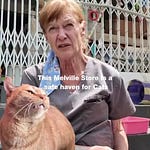In Limpopo, a grandmother’s mayonnaise recipe has become more than a family tradition. Khutsiso Mosetsho Chuene turned it into Queen Mosima Mayonnaise, a township business that supports local farmers, small producers, and workers.
“I want people to feel the traditional taste of the Queen Mosima mayonnaise,” he says. That recipe, handed down through generations, became more than a family tradition — it became the seed of a township business that now employs locals, supports small farmers, and uplifts an entire value chain.
“One thing that pushed me to climb this was the love of the food,” Khutsiso explains.
“I wanted to create a market, I wanted to create a chain for those SMMEs that are selling eggs, lemons. I wanted to create job opportunities for people in the community.”
Queen Mosima Mayonnaise is now stocked in retail outlets across Limpopo. Beyond taste, the brand represents opportunity — for farm suppliers, township workers, and small vendors who form the backbone of Khutsiso’s growing business. In a country with high unemployment and few Black-owned food manufacturing brands, the story is remarkable.
Each jar is more than a condiment; it’s a connection to local livelihoods and a taste of tradition in homes across South Africa.
Heritage Month in South Africa celebrates culture, tradition, and identity. But what does it mean to be South African in 2025? To explore this, we asked ordinary South Africans what the most South African thing about themselves was.
Responses varied. Some spoke of food — mogodo, pap, traditional stews. Others reflected on economic realities: being tenants, juggling odd jobs, or supporting extended family. Khutsiso’s mayonnaise fits right into this tapestry. It’s a taste of tradition, yes, but also a network of livelihoods. It shows how heritage can become a vehicle for opportunity, creativity, and resilience.
The Other Side of Opportunity
Economic pressures push some South Africans toward different paths. Online gambling has grown more than 1,400% in five years, now outspending other forms of entertainment.
“It’s easier betting for me. Rather than going to the store, I can go on my phone — more convenient for me. A day I buy a voucher for 50 or 100 rands and that will be enough for the day,” said one player.
“I tried it at first and I won a big win, I gained about 1.5 and continued. I wouldn’t say it’s addictive, it’s something you do on your phone and then get back to work. Something to do in your spare time.”
Stories like this are becoming common — because the most popular way to gamble today isn’t the lotto or the casino.
Makashule Gana, Member of Parliament and expert in the field, explains:
“The betting that’s most prevalent in South Africa, it’s a big thing that’s online, so the use of cell phones online, but mostly through bookmakers and sports betting sites, that’s what’s most prevalent in South Africa. So we are seeing a move away from the traditional casinos into online using cell phones and computers.”
“Poverty leads to the growth in that people believe that there will be better opportunities to multiply their income… and the proliferation of advertising is also leading to the growth because people believe they can get rich quicker.”
"The World Health Organisation has classified gambling addiction as a mental health concern. We need to close all unregistered gambling sites operating in South Africa… work with banks, payment providers and service providers to stop that. We also need to look at the money gambling operators pay towards rehabilitating problem gamblers, and the general taxes they pay in South Africa.”
Convenient, small, and online — betting might feel harmless. But for millions, it’s a growing problem with real consequences.
These stories; one of a township entrepreneur creating opportunity, another of a player chasing small online wins, reveal the choices South Africans make under economic pressure.
Heritage is not only culture; it’s survival, creativity, and resilience. From Khutsiso’s grandmother’s kitchen to mobile phones across the country, South Africans are navigating tradition, opportunity, and risk every day.














